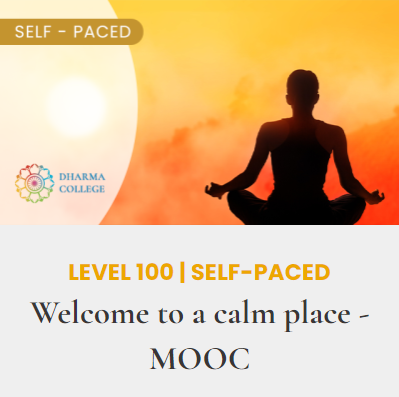Exploring the Notion of Being Spiritual but Not Religious
In recent years, a growing number of individuals have identified as "spiritual but not religious" (SBNR). This concept has sparked intriguing discussions within society, prompting questions about its meaning, feasibility, and practical implications. In this blog post, we delve into the intricacies of what it means to be spiritual but not religious, explore its possibility, and examine how it manifests in everyday life.

What Does it Mean to be Spiritual but Not Religious?
The term "spiritual but not religious"
encapsulates a belief system where individuals identify with spirituality but
do not adhere to the structures and doctrines of organized religion. It
suggests a personal, individualized approach to spirituality that may encompass
various beliefs, practices, and experiences.
For many, being spiritual but not religious signifies a
departure from traditional religious institutions while maintaining a deep
connection to transcendent or sacred elements. It often involves seeking
meaning, purpose, and fulfillment through introspection, meditation, nature, or
other spiritual practices outside formal religious settings.
Is it possible to be Spiritual and Not Religious?
The distinction between spirituality and religiosity lies at
the heart of this question. While religion typically entails adherence to
specific doctrines, rituals, and communal practices within organized
institutions, spirituality encompasses a broader sense of connection to
something greater than oneself.
Indeed, it is entirely possible—and increasingly common—for
individuals to embrace spirituality without affiliating with organized
religion. This trend reflects a shift in societal attitudes towards
spirituality, wherein people prioritize personal growth, exploration, and
authenticity over adherence to traditional religious structures.
What Does Being Spiritual but Not Religious Look Like in Practice?
The practice of being spiritual but not religious can manifest in diverse ways, shaped by individual beliefs, experiences, and preferences. Some common aspects include:
- Personal Exploration: SBNR individuals often engage in introspective practices such as meditation, mindfulness, or journaling to deepen their spiritual connection and understanding.
- Nature and Solitude: Many find solace and inspiration in nature, viewing it as a sacred space for contemplation, renewal, and connection with the divine or the universe.
- Eclectic Beliefs: Rather than adhering to a single religious doctrine, SBNR individuals may draw inspiration from multiple spiritual traditions, philosophies, or teachings that resonate with their personal values and experiences.
- Community and Connection: While not bound by traditional religious communities, SBNR individuals often seek like-minded communities or spiritual circles where they can share experiences, insights, and support on their spiritual journeys.
- Ethical Living: Spirituality for many SBNR individuals is intertwined with ethical principles and values, guiding their actions, relationships, and contributions to society.
In conclusion, the rise of the spiritual but not religious phenomenon reflects a shifting landscape of spirituality in contemporary society. It challenges us to rethink conventional notions of religion and spirituality, inviting us to embrace diversity, individuality, and the quest for meaning in our unique ways. Whether one identifies as spiritual, religious, or somewhere in between, what ultimately matters is the journey of the soul and the pursuit of truth, love, and transcendence in our lives.
If you're seeking to deepen your spiritual journey and explore practices that resonate with your soul, consider enrolling in our course, "Welcome to a Calm Place." This transformative course offers guidance and tools to cultivate inner peace, mindfulness, and a deeper connection to the sacred within. Join us on this journey of self-discovery and inner tranquility.
Additionally, if you're interested in exploring advanced topics in spirituality and consciousness, our Level 300 courses offer a wide variety of subjects for free exploration and expression. These courses encourage liberated cognitive freedom and fully embodied learning, helping you unfold like the petals of a lotus and discover the beauty within. Explore more in our post, "Wisdom."
Life can often seem overwhelming, but what if everyday living could be as interesting as your favorite book or as playful as a joyous dance? Our Living program offers courses designed to develop well-being and build a spiritual foundation that will serve you well for the rest of your life. Discover new and more effective ways to understand your mind, open your heart, and bring ease to your body and senses. Learn more about reimagining your life as a unique and fulfilling pathway to wisdom, caring, and inner peace in our post, "Living."
If you're interested in exploring further, consider reading the following articles:
- Who Are Spiritual but Not Religious Americans? - A study by the Pew Research Center delved into the demographics and characteristics of Americans who identify as spiritual but not religious.
- Spiritual but Not Religious - An article from Harvard Divinity School Bulletin exploring the concept of being spiritual but not religious and its implications in contemporary society.
Remember, the journey of self-discovery and inner tranquility is unique for each individual. Embrace your path with openness and authenticity.

Contact
(510) 704-1105

